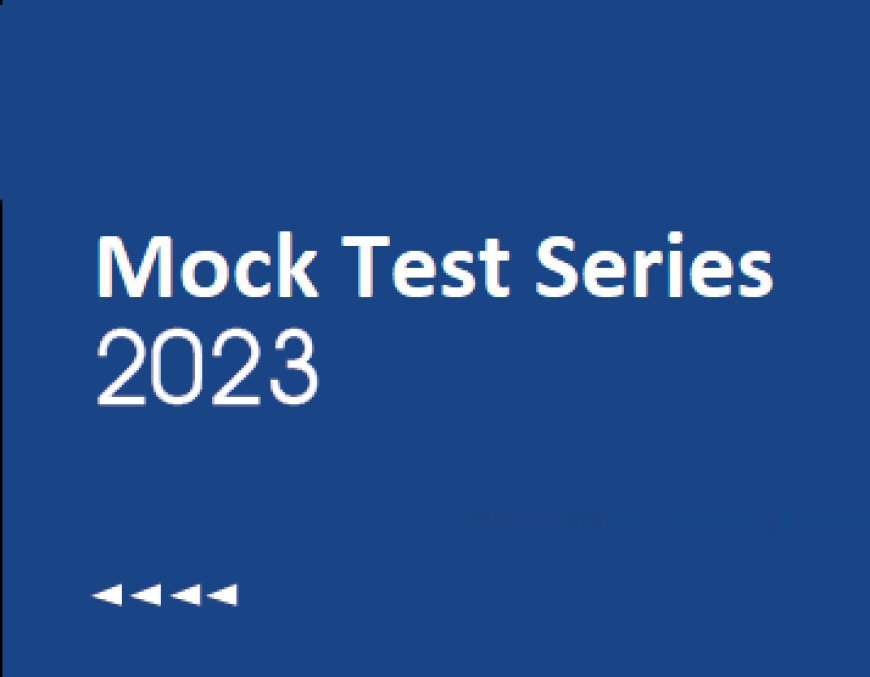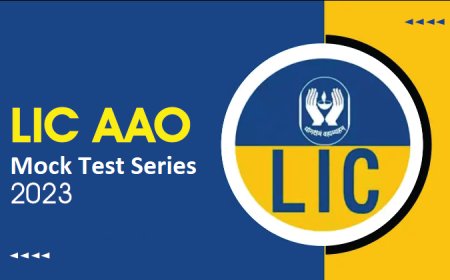AAO Exam-CT 5: Quant (Ratio and Proportion)
AAO Exam-CT 5- Quant (Ratio and Proportion)

1. The price of toys A, B, C are in the ratio 4 : 5 : 3 If the increments of 10%, 6% and 20% are allowed respectively in their prices, then what will be new ratio of their prices?
-
53 : 44 : 36
-
36 : 55 : 44
-
Can't be determined
-
None of these
Given:
Price of toys A, B, C are in the ratio 4 : 5 : 3
Increments of 10%, 6% and 20% are allowed respectively in their prices
Calculations:
Let A = 4x, B = 5x and C = 3x.
New price of toy A = (110/100) of 4x = (110/100) × 4x = (44/10)x
New price of toy B = (106/100) of 5x= (106/100) × 5x = (53/10)x
New price of toy C = (120/100) of 3x = (120/100) × 3x = (36/10)x
⇒ New ratio (A : B : C) = (44/10)x : (53/10)x : (36/10)x = 44 : 53 : 36
∴ New ratio of their prices is 44 : 53 : 36
-
120 kg
-
132 kg
-
96 kg
-
144 kg
Given:
Volume ratio = 3 : 5 : 7
Weight ratio of equal volume = 4 : 2 : 3
Total mixture = 387 kg
Calculation:
Weight ratio = (3 × 4) : (5 × 2) : (7 × 3)
⇒ 12 : 10 : 21
Total weight = 43 ratio
Required weight = 387/43 × 12 = 108 kg
∴ The answer is 108 kg
-
Rs. 1100
-
Rs. 3300
-
Rs. 4400
-
Rs. 3500
Given:
Income = 9 : 11
Expenditure = 5 : 7
savings = Rs. 4400
Calculation:
Let the income of A be Rs. 9x
Income of B = Rs. 11x
Expenditure of A = 5y
Expenditure of B = 7y
So, 9x - 5y = 4400 ----(1)
11x - 7y = 4400 ----(2)
(1) × 7 - (2) × 5 gives,
63x - 35 y - 55x + 35y = 8800
⇒ 8x = 8800
⇒ x = Rs. 1100
∴ Difference = 2x = Rs. 2200
∴ The answer is Rs. 2200

Savings = 9 - 5 = 4 ratio, 11 - 7 = 4 ratio
A.T.Q
4 ratio = 4400
Difference = 2 ratio = Rs. 2200
∴ The answer is Rs. 2200
4. A and B are two alloys of silver and zinc in the ratio 2 : 3 and 5 : 2. Equal quantities of these alloy are mixed to form a new alloy. Find the ratio silver and zinc in the new alloy.
-
20 : 16
-
12 : 21
-
16 : 20
-
31 : 39
Given:
Ratio of silver and zinc in A = 2 : 3
Ratio of silver and zinc in B = 5 : 2
Calculation:
Silver in A = 2/5
Zinc in A = 3/5
Silver in B = 5/7
Zinc in B = 2/7
Ratio of silver and zinc in the new mixture = (2/5 + 5/7)/(3/5 + 2/7)
⇒ 39/35 : 31/35
New ratio = 39 : 31
∴ Ratio of Silver and Zinc in new alloy = 39 : 31.
5. Nine tickets to Delhi and two tickets to Amritsar cost as much as two tickets to Delhi and seven tickets to Amritsar. What is the ratio of the cost of a ticket to Delhi that of Amritsar?
-
7 :5
-
4 :7
-
3 :1
-
7 :9
Given:
Price of nine tickets to Delhi and two tickets to Amritsar = Price of two tickets to Delhi and seven tickets to Amritsar
Calculation :
Let the cost of a ticket to Delhi be Rs. x and of Amritsar be Rs. y.
⇒ Cost of nine tickets to Delhi and two tickets to Amritsar is = 9x + 2y
⇒ Cost of two tickets to Delhi and seven tickets to Amritsar is = 2x + 7y
⇒ 9x + 2y = 2x + 7y
⇒ 7x = 5y
⇒ x/y = 5/7
Hence the ratio of the cost of a ticket to Delhi that is Amritsar is 5 : 7.
-
12
-
10
-
18
-
16
Given:
In a bag, there are Rs.5 and Rs.10 coins in the ratio of 4 : 11 respectively. The
difference between the amount of Rs.10 coins and Rs.5 coins is Rs.180
Calculation:
Let number of Rs.5 and Rs.10 coins be 4a and 11a respectively.
The amount of Rs.5 coins = 5 × 4a = Rs.20a
The amount of Rs.10 coins = 10 × 11a = Rs.110a
⇒ 110a - 20a = 180
⇒ a = 2
Total number of coins in a bag = 4a + 11a = 15a = 15 × 2 = 30
Required average = 30/2 = 15
∴ the correct answer is 15.
7. The four numbers are in ratio 8 : 7 : 5 : 13. The difference between the largest and smallest number is 4800. What is the value of the smallest number?
-
2000
-
5000
-
6000
-
7000
Given:
The ratio of the four numbers is 8 : 7 : 5 : 13
Calculation:
Let the numbers be 8x, 7x, 5x and 13x
13x – 5x = 4800
⇒ 8x = 4800
⇒ x = 600
⇒ Smallest number = 5x
⇒ 5 × 600 = 3000
∴ The smallest number is 3000.
8. The ratio of Ram’s Salary for May 2020 to his salary for June 2020 was 4 : 3 and the ratio of the salary of June 2020 to October 2020 were 6 : 9. Ram got Rs. 8,000 more salary in October from May 2020, and receives 10% of the salary as Diwali Bonus in October, Find the amount of bonus.
-
Rs.7,000
-
Rs.7,400
-
Rs.7,240
-
None of these
Given:
Ratio of Ram’s Salary for May 2020 to his salary for June 2020 = 4 : 3
Ratio of Ram’s Salary for June 2020 to October 2020 = 6 : 9
Concept:
If A is x% of B
Than, x% = (A/B) × 100
Calculation:
Salary in May : Salary in June : Salary in October = 4 × 6 : 6 × 3 : 9 × 3
⇒ 24 : 18 : 27
Or 8x : 6x : 9x
Ram got Rs.8,000 more salary in October from May 2020 = 9x – 8x
⇒ x = 8000
Diwali Bonus amount in October = 10% of (9 × 8000)
⇒ Rs.7,200
∴ Amount of bonus is Rs. 7,200
9. An amount of sum is to be divided between A, B and C in the ratio of 1 : 3 : 4 in this month and the difference between B and C’s share is Rs. 1600. If the total amount becomes twice the next month, find the total amount of the sum in the next month.
-
Rs. 24800
-
Rs. 32000
-
Rs. 28800
-
Rs. 22400
Given:
Ratio of A, B and C in this month for the sum divided = 1 : 3 : 4
Difference between B's share and C's share = Rs. 1600
Amount becomes twice the next month.
Calculation:
Let the amount to be divided between A, b and C be x, 3x and 4x
Total amount in this month = x + 3x + 4x = 8x
According to the question,
⇒ 4x – 3x = 1600
⇒ x = 1600
Total amount this month = 8 × 1600 = Rs. 12,800
Total amount for next month = Rs. 12,800 × 2
⇒ Rs. 25,600
∴ The total amount for next month is Rs. 25,600
-
4 : 7
-
4 : 11
-
16 : 9
-
4 : 9
GIVEN :
The number of Rs. 5 coins is 15 more than Rs. 10 coins in a wallet.
The number of coins of Rs. 5 is 37.5% more than the number of coins of Rs. 10.
FORMULA USED :
X% of Y = XY/100
ASSUMPTION :
Let the number of Rs. 10 and Rs. 5 coins be A and (A + 15) respectively.
CALCULATION :
⇒ A + 15 = A × 137.5/100
⇒ A = 40
Number of Rs. 5 coins = 40 + 15 = 55
Number of Rs. 10 coins = 40
Ratio between the number of Rs.10 and Rs.5 coins = 40 : 55 = 8 : 11
Ratio between the unit price of Rs.10 and Rs.5 coins = 10 : 5 = 2 : 1
Required ratio = 8 × 2 : 11 × 1
= 16 : 11
∴ The correct answer is 16 : 11




